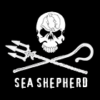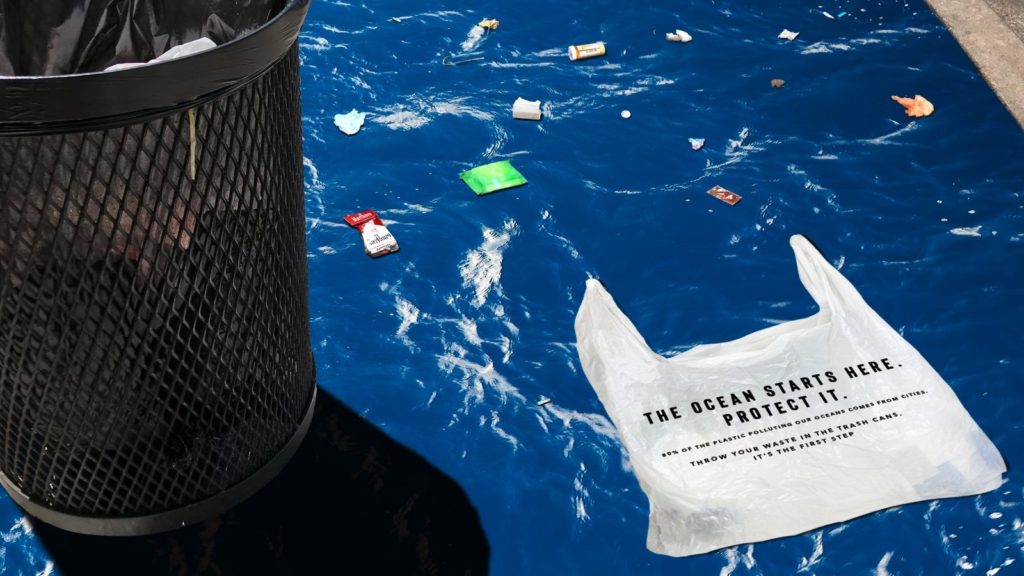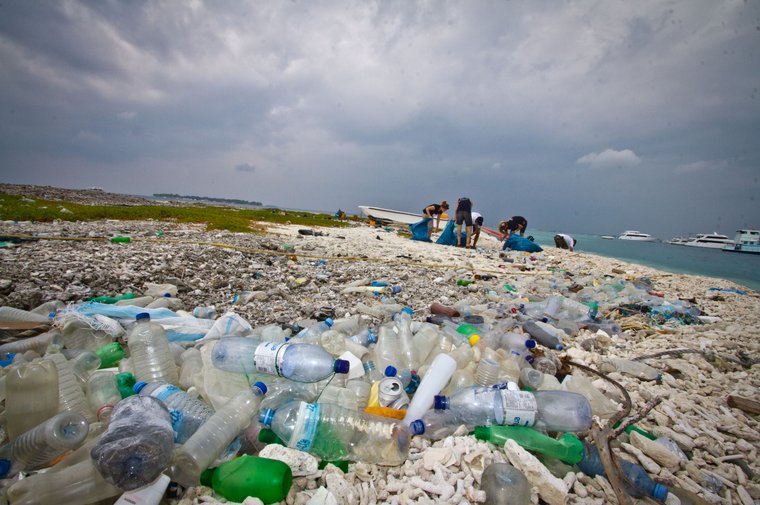Stop the Plastic Ocean
ENVIRONMENT, 30 Jul 2018
Sea Shepherd – TRANSCEND Media Service
9 Jul 2018 – Marine debris is any persistent, manufactured or processed solid material discarded, disposed of or abandoned in the marine and coastal environment, including consumer items such as glass or plastic bottles, cans, bags, balloons, rubber, metal, fibreglass, cigarettes and other manufactured materials. It also includes fishing gear such as line, ropes, hooks, buoys and other materials lost or intentionally discarded at sea. Marine debris is globally recognised as an environmental concern. It is a danger to all marine life including birds, sharks, turtles and marine mammals, causing injury or death through drowning, entanglement, or starvation following ingestion. Plastics make up a large part of the marine debris choking our oceans today. Here are some tips on how you can help keep it out of our oceans.
Don’t forget the four R’s: REFUSE – REUSE – REDUCE – RECYCLE!
- Buy and reuse produce bags (preferably from cloth) instead of plastic bags.
- Don’t chew gum! Gum is made of synthetic rubber, which is also plastic.
- Refuse single-use plastic straws. If you need a straw to drink, carry your own reusable one instead.
- Purchase food from bulk bins as much as possible, using your own reusable containers.
- And speaking of reusing containers. If you do have to buy containers for food, reuse those containers for storing left-overs or buying bulk.
- Get a reusable bottle or mug for your beverages. All major beverage companies will happily fill your own cup.
- Avoid buying frozen foods. They are almost always wrapped in plastic.
- It is estimated that about 3.4 million metric tons of diapers are disposed of in the US alone every year. These diapers contain a lot of plastics, and can easily be replaced with cloth diapers.
- Use sustainable and nature-friendly soaps and cleaning products from companies like Dr Bronners (who are also big Sea Shepherd supporters!) Often you can also buy these products in bulk with your own containers.
- Avoid cleaning-products with micro-beads. These micro-beads are often made of plastics.
- Make your own fresh squeezed juice instead of buying the bottles or cartons from the store. Yes, even the cartons include plastic.
- Use a safety razor with replaceable, recyclable blades instead of disposable ones. Plastic microfibers from synthetic clothing travel unseen from washing machines and into our waterways. Opt for clothing made from natural fibers like cotton and linen, or use special washing bags like the Guppyfriend in your machine.
- Plastic microfibers from synthetic clothing travel unseen from washing machines and into our waterways. Opt for clothing made from natural fibers like cotton and linen, or use special washing bags like the Guppyfriend in your machine.
- Shop to Support! Check around your own home for containers, bags and other items you can reuse, or purchase reusable items — like bottles, mugs, cloth shopping bags, and Guppyfriend wash bags — from official Sea Shepherd Stores to help further support our marine conservation campaigns.
- Participate in your local beach or waterway clean-ups. Sea Shepherd groups around the world announce official beach clean-up events on their Facebook pages.
Check out the Ocean Starts Here video below, or all of Sea Shepherd’s Marine Debris Campaign videos here.
httpv://www.youtube.com/watch?v=jSAO06LyE24
__________________________________________________
 Sea Shepherd is the world’s leading direct-action ocean conservation organisation.
Sea Shepherd is the world’s leading direct-action ocean conservation organisation.
Go to Original – seashepherdglobal.org
DISCLAIMER: The statements, views and opinions expressed in pieces republished here are solely those of the authors and do not necessarily represent those of TMS. In accordance with title 17 U.S.C. section 107, this material is distributed without profit to those who have expressed a prior interest in receiving the included information for research and educational purposes. TMS has no affiliation whatsoever with the originator of this article nor is TMS endorsed or sponsored by the originator. “GO TO ORIGINAL” links are provided as a convenience to our readers and allow for verification of authenticity. However, as originating pages are often updated by their originating host sites, the versions posted may not match the versions our readers view when clicking the “GO TO ORIGINAL” links. This site contains copyrighted material the use of which has not always been specifically authorized by the copyright owner. We are making such material available in our efforts to advance understanding of environmental, political, human rights, economic, democracy, scientific, and social justice issues, etc. We believe this constitutes a ‘fair use’ of any such copyrighted material as provided for in section 107 of the US Copyright Law. In accordance with Title 17 U.S.C. Section 107, the material on this site is distributed without profit to those who have expressed a prior interest in receiving the included information for research and educational purposes. For more information go to: http://www.law.cornell.edu/uscode/17/107.shtml. If you wish to use copyrighted material from this site for purposes of your own that go beyond ‘fair use’, you must obtain permission from the copyright owner.

